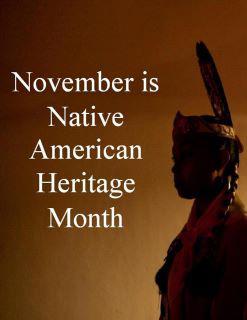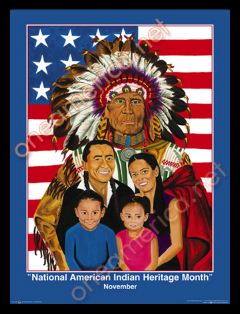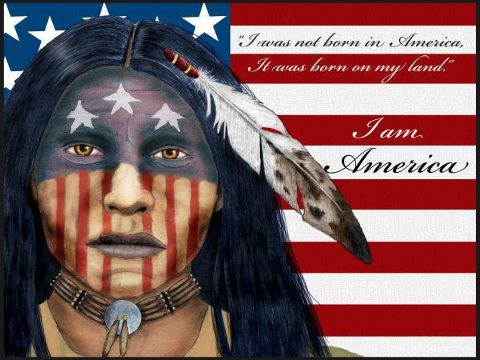Roy Cook
 November
is recognized as National American Indian Heritage Month. America's first
peoples have endured, and they remain a vital cultural, political, social,
and moral presence. Tribal America has brought to this great country certain
human values and political ideas that have become ingrained in the spirit
of the United States of America.
November
is recognized as National American Indian Heritage Month. America's first
peoples have endured, and they remain a vital cultural, political, social,
and moral presence. Tribal America has brought to this great country certain
human values and political ideas that have become ingrained in the spirit
of the United States of America.
In the 1960s, the term Native American attempted to correct the historical error between the indigenous people of the Americas and the indigenous people of India. Unfortunately it has not because most citizens of the USA consider themselves to be Native to this country but it remains in current political usage. The original term, American Indian, is least misunderstood or exploited by non-Tribal people.
Most Tribal people would prefer leaving such general terms behind in favor of specific tribal designations. Most non-Indian folks do this all the time: Irish, Scot, French, Italian or combination, etc.

Over the last few decades, we have seen that tribal nations have started to take back their original names for themselves: Diné (formerly Navajo); Ho-Chunk (formerly Winnebago); Anishinaabe (formerly Chippewa); and Tohono O'odham Nation of Arizona (formerly known as the Papago Tribe of the Sells, Gila Bend, and San Xavier Reservations in Arizona). Whenever possible, individual tribal names should be the precise terms used.

November is an appropriate month for the celebration because it is traditionally a time when many American Indians hold fall harvest and world-renewal ceremonies, powwows, dances, and various feasts. The holiday recognizes hundreds of different tribes and approximately 250 languages, and celebrates the history, tradition, and values of American Indians. National American Indian Heritage Month serves as a reminder of the positive effect native peoples have had on the cultural development and growth of the U.S., as well as the struggles and challenges they have faced.
Over the years, the people whom these words are meant to represent have made their preference clear: the majority of American Indians/Native Americans believe it is acceptable to use either term, or both.
How about you? What is your opinion? Take pride in your Tribe!
Mehan, Aho, Thank
you.